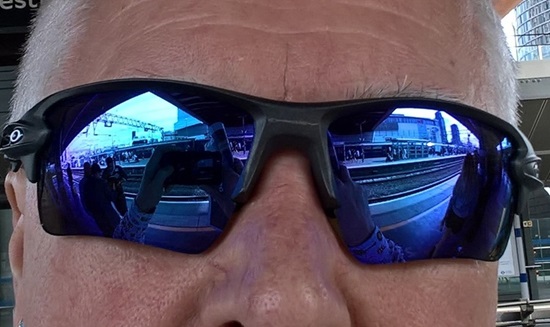
It’s three days in to the 2023 High Fives and we thought it was time to let Allan off the leash for his first contribution this year. Here are some of his reminiscences on gigs and artists old and new with a few photos as well. As you can tell from Allan’s introduction, every year has its losses as well as gains.
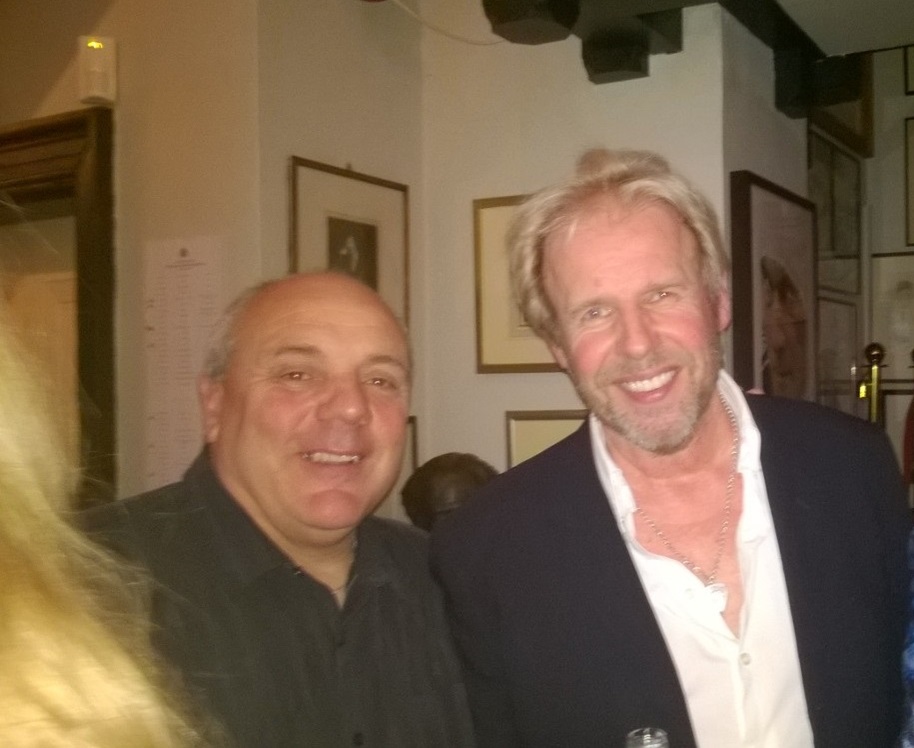
I’m rapidly approaching my fiftieth anniversary of gig-going and 2023 has been a year where the old and the new have frequently crossed paths as I’ve navigated the London gig scene. Before I get on to the positive stuff, there’s one loss we’ve suffered this year that really hurt. My love of live music kicked off when I was a student in Dundee between 1976 and 1980. One of the bands I saw there was the Scottish soul band Cado Belle. Maggie Reilly was an astonishing singer, but I was blown away by guitar player Alan Darby and his astonishing work on the tone poem ‘September’. The band split after one album and Alan did many things (including working on the door of a Covent Garden club managed by a friend of mine) before finally establishing himself as a guitar player and musical director with Lulu, Van Morrison and Les McKeown before going on to work in The Dominion production of ‘We Will Rock You’. A few years ago, courtesy of the wonderful Artie Zaitz, I wangled an invite for myself and my old mate (and Music Riot contributor) Steve Jenner to meet Alan at Chelsea Arts Club after a Guitars Deluxe performance. He was a lovely guy and he lost his battle with cancer earlier this year. Thankfully, we still have his music. Apologies for starting with a sad story, but those memories are as important as the happy ones, which are coming at you in chronological order.
Pin Drop Sessions @Caddy’s Southend (February 2023)
Have you ever been in Southend on a Friday night in February? It’s cold; it’s bloody cold, but I was going to see the brilliant Phil Burdett for the first time in 2023. It was a chance to see a new venue, have a beer or two with Phil and local bass maestro Martin Cutmore and grab a few pictures. So why is it called ‘Pin Drop Sessions’? It’s back to the old school; a small room, no PA and only acoustic instruments. No soundchecks, turn up and play to an audience that wants to hear music and doesn’t want to talk through the performances. You could literally hear a pin drop.
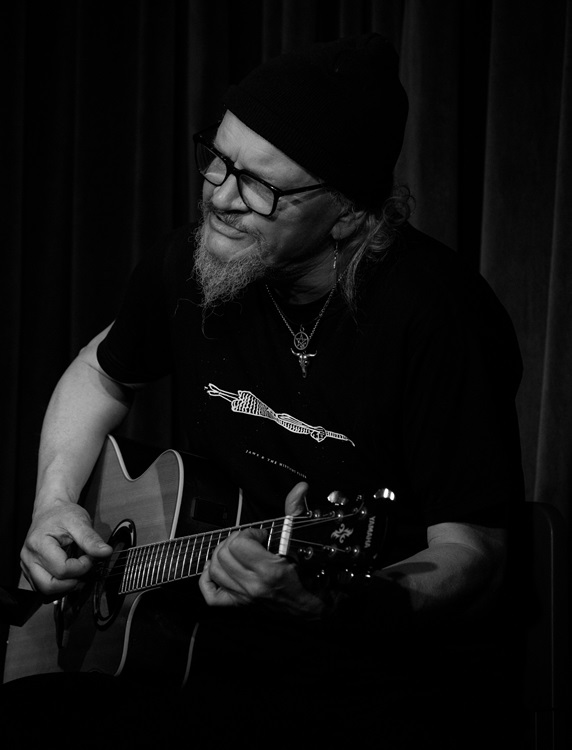
I’ve seen Phil Burdett performing many times over the last ten years as a singer-songwriter, author and poet and he’s always worth watching, never more so than in this intimate setting. It was perfect for Phil’s tales of Essex.
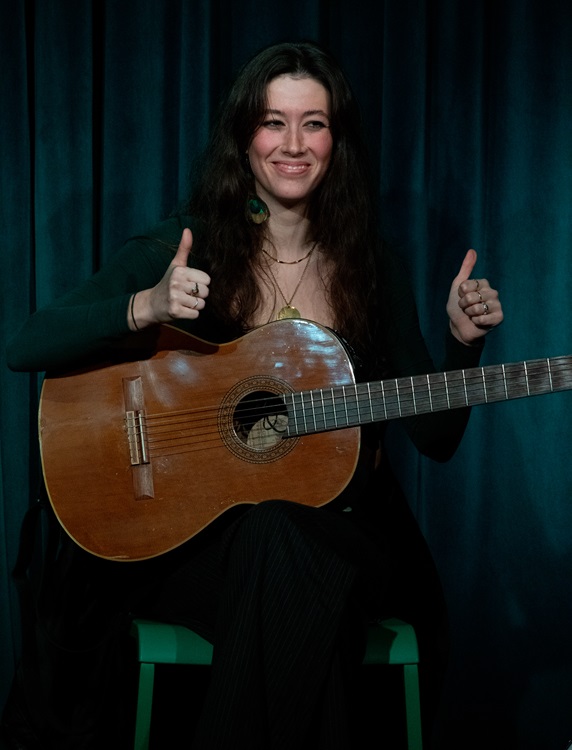
On this night, the new (for me) was Isabel Inkcap, who was totally engaging as she delivered her folk-inspired songs to a rapt audience. She’s a genuine talent who wins over the audience by sheer presence before she even starts to play either guitar or banjo. She also gifted me a great photo opportunity after a lengthy tuning session when it was obvious she was going to react somehow. I couldn’t have hoped for a better reaction.
Frankie Miller’s Full House @The 100 Club 30th May 2023
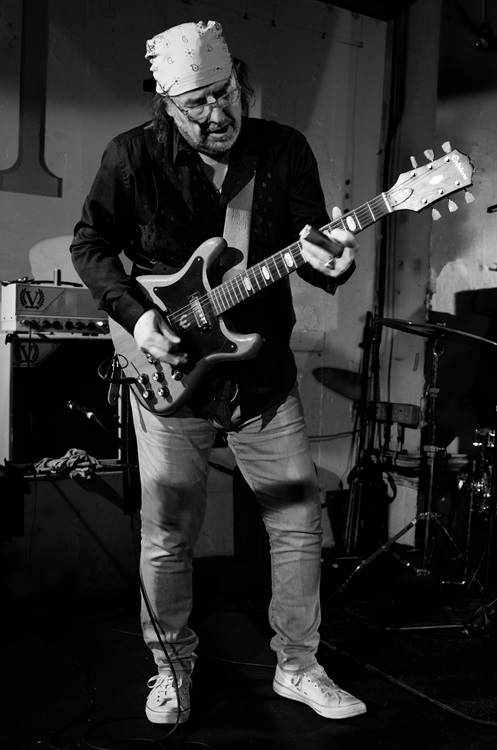
In more ways than one, this comes back to Steve Jenner again. The first band that we saw together at Dundee University was Frankie Miller’s Full House. The blend of rock and soul and Frankie’s incredible voice blew us away; live music was never the same after that. Frankie’s band included a guitar player I’d never seen before, who went on to become hugely respected in the music business as a player and a historian; his name’s Ray Minhinnett. Frankie worked with various musicians live and on record before a brain aneurysm in 1994 ended his musical career. He’s doing fairly well now after all the trauma and the beautiful thing is that his legacy is still intact and his fans still want to hear those songs, which is where Steve Jenner comes back into the picture.
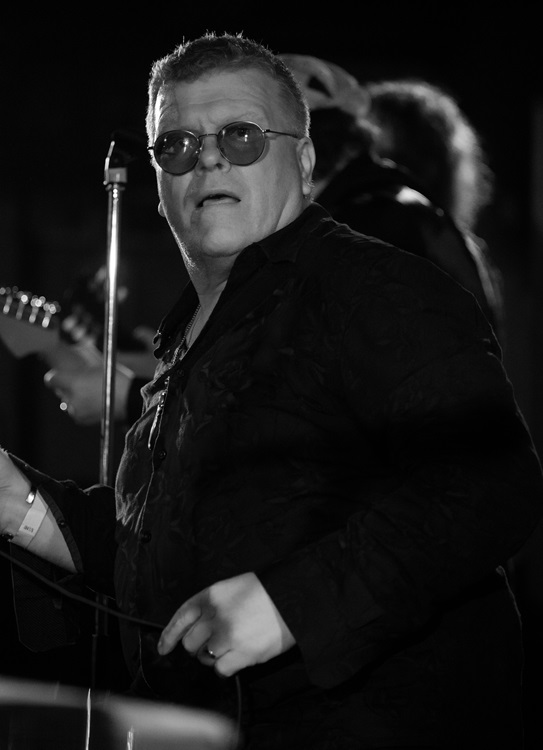
Early in 2023, Steve saw a reconstituted Full House (led by Ray Minhinnett and fronted by singer Gregor MacGregor). He pointed me in their direction and in May 2023 I got the chance to shoot Full House at The 100 Club. Frankie Miller was a one-off, but Gregor MacGregor has the Scottish voice to tackle Frankie’s songs with restraint and power in equal measure (and he’s a lovely bloke). A good night was had by everyone and the 1970s worked pretty well in the 2020s.
Southside Johnny @Shepherd’s Bush Empire 7th July 2023
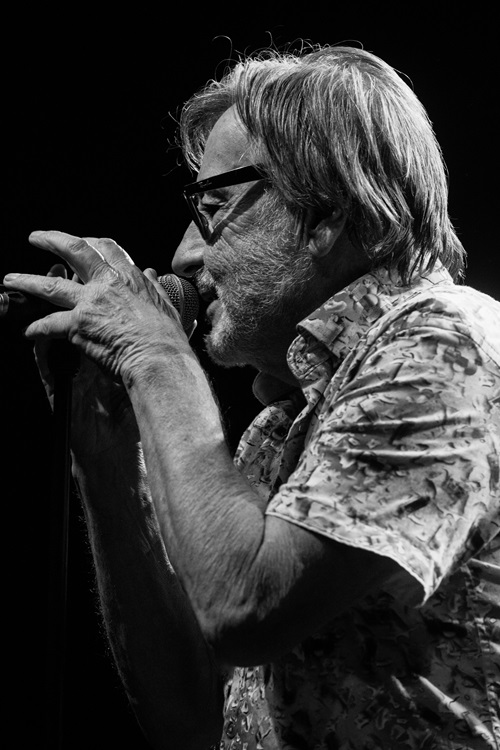
It was a “Will he, won’t he” gig. The talk in the pubs around Shepherd’s Bush Green on the day was about whether Bruce Springsteen might make a guest appearance between his two Hyde Park gigs on the 6th and the 8th. He didn’t, but my mate and guitar player extraordinaire, Jim Maving did bump into the E Street Band bass player Garry Tallent at the gig. Bruce or no Bruce, I never miss a Southside show because you never know when the next one will be. I’ve been a Southside fan for nearly fifty years and I’ve been lucky enough to meet and interview him a few times and photograph him loads of times. I got really lucky this time. In the past, I’ve missed a few great photo opportunities because of the house policy of checking in all pro gear backstage after the first three songs – that didn’t apply this time and I got to shoot from the auditorium for the rest of the set and caught some cracking shots.
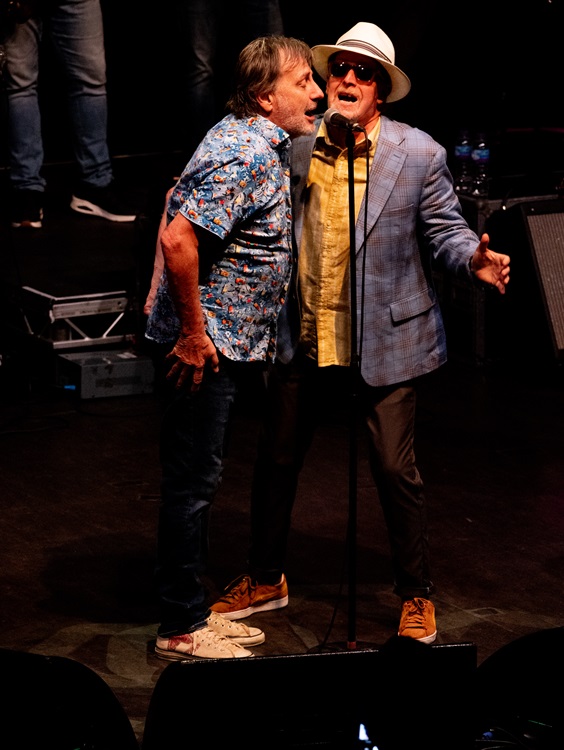
I’ve written about Southside Johnny and the Asbury Jukes before and I’m fairly certain I’ll write about them again. There’s a magic that happens when you take eight world-class musicians and give them the opportunity to express themselves within the framework of four-minute songs; you should all take the opportunity experience it.
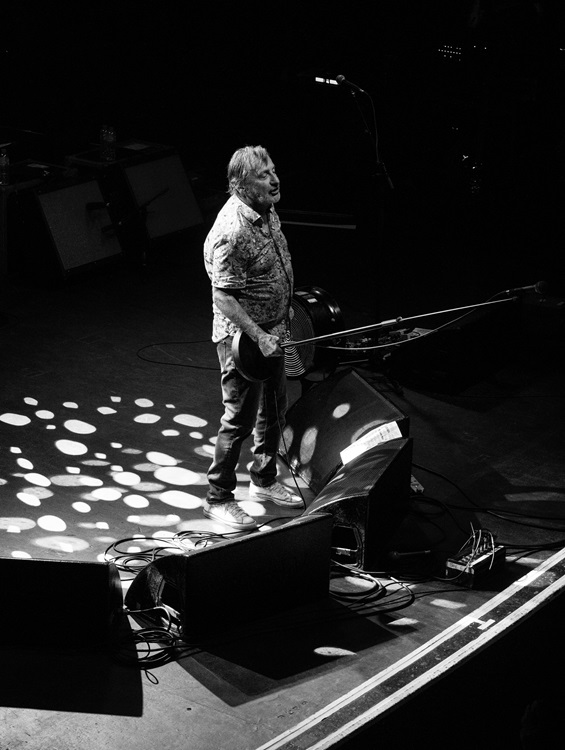
Folk in the Park Sutton 19th August 2023
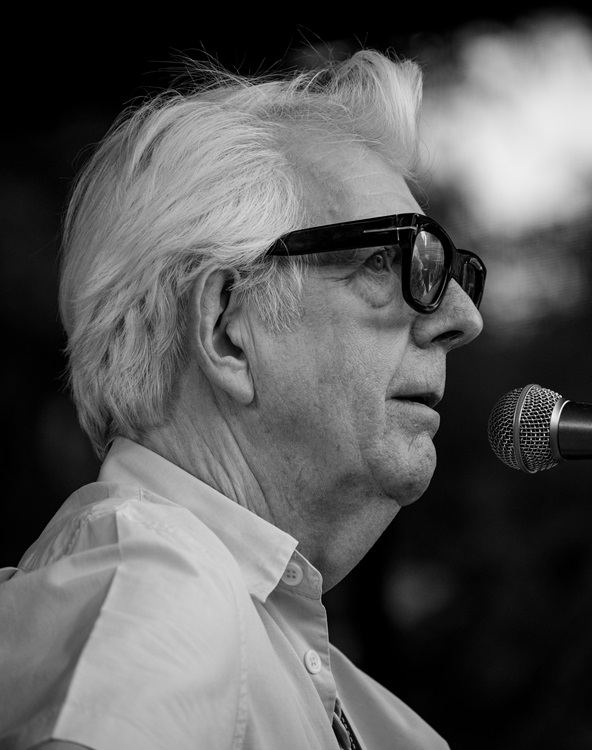
If you haven’t met Hannah White and Keiron Marshall, you really should. They’re both incredibly talented but they’re the nicest people you could ever wish to meet and they care passionately about music, about the environment and people in general. Hannah’s songwriting is always powerful and sometimes visceral (‘Car Crash’ is a great example) and Keiron shapes the arrangements and production for her songs bringing in all sorts of musicians, including Michelle Stodart to back Hannah live and in the studio.
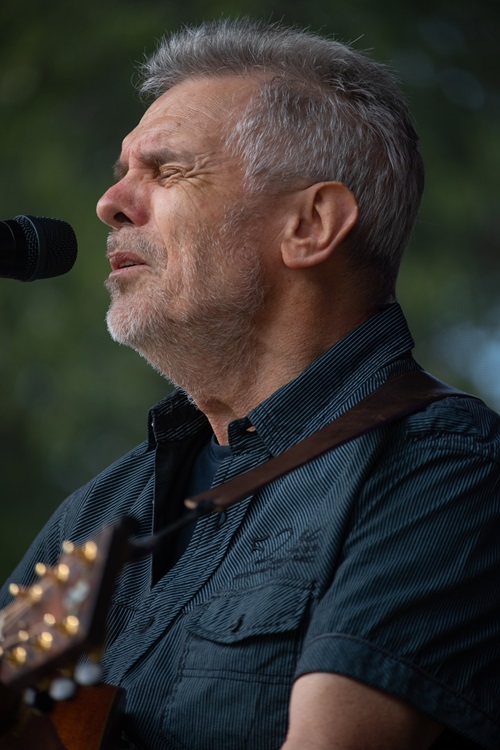
In 2022, they put together a festival in Manor Park, Sutton which was reasonably successful and decided to expand it in 2023 with more well-known and acclaimed and artists. I would have supported the event whoever was on the bill, but Hannah and Keiron excelled themselves, pulling in appearances from the legendary Nick Lowe (who I saw at my first gig when he played with Brinsley Schwarz) and Iain Matthews (whose album, ‘Stealing Home’, I bought in 1980 on blue vinyl and I’ve loved ever since). And they had Del Amitri topping the bill. Oh, and Hannah made an appearance with her band as well.
I’ve followed Hannah’s career for a few years now and it’s been a revelation to see genuine talent being recognised critically and commercially. Bring on 2024.
Stone Foundation 25th Anniversary tour
You’ve already read me rattling on about working with one of my teenage musical heroes; I think Neil Sheasby of Stone Foundation trumps me on this one. Neil was a fan of The Jam from their earliest days and, as Stone Foundation gathered momentum through the 21st century, they picked up a celebrity fan, Paul Weller, who went on to collaborate with them, produce their albums at Black Barn Studios and guest on a few of their gigs.
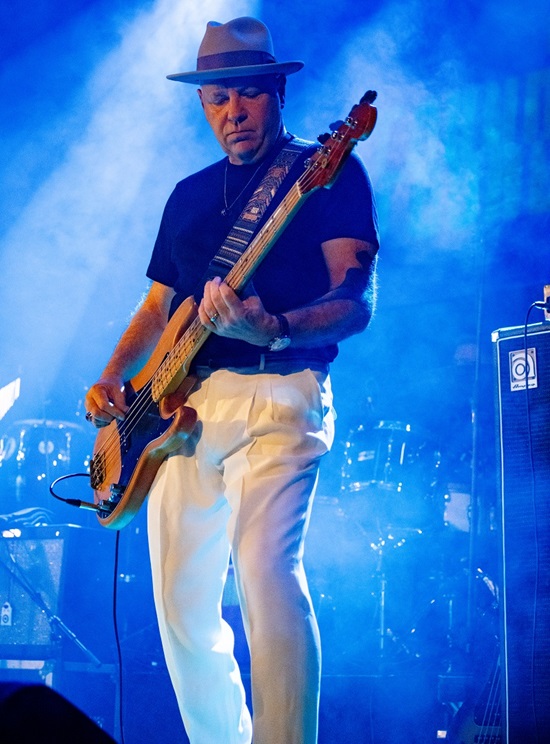
Forgive me for listing the band members, but Stone Foundation is a team effort and the core of the band has been together now for twenty-five years. Here we go: Neil Jones (vocals/guitar), Neil Sheasby (bass), Phil Ford (drums), Ian Arnold (keys), Rob Newton (percussion), Steve Trigg (trumpet and fluegelhorn), Dave Boraston (trumpet and fluegelhorn) and Anthony Gaylard (saxophone). They’re an incredibly tight soul unit and Neil Jones once told me that having the horn section on stage was like wearing a suit of armour.
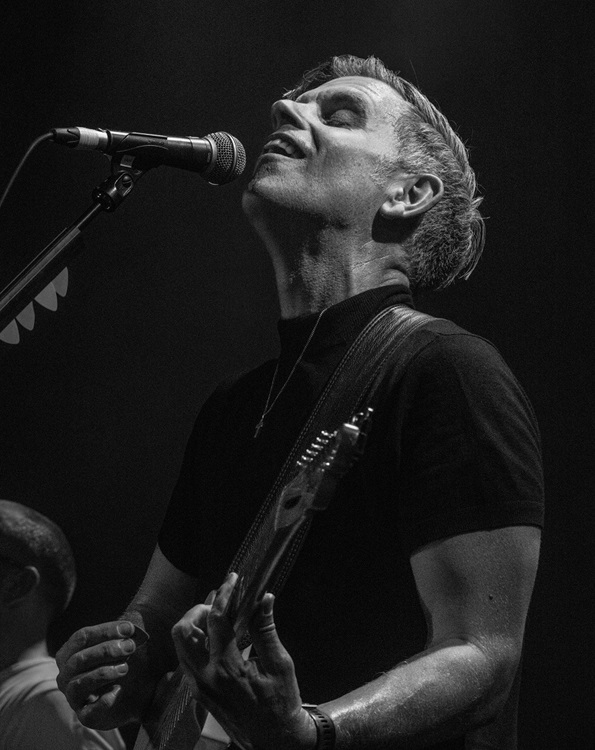
I’ve been a fan for over ten years and this year they celebrated their 25th anniversary with a UK tour that wound up with two nights at Islington Assembly Hall. They were supported by the wonderful Emily Capell (check out her album ‘Combat Frock’), DJ Robert Elms and had guest appearances from Mick Talbot, Graham Parker, Laville and Paul Weller over the two nights. If you want a validation of their work, I think that does it.
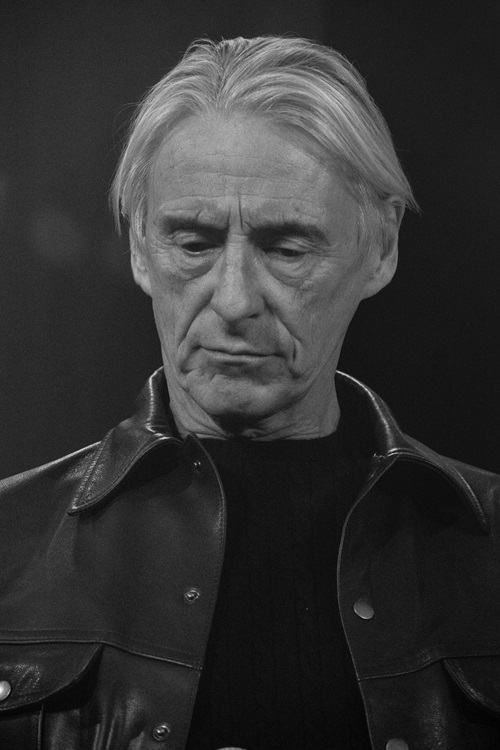
After almost fifty years of watching live music, it’s fabulous to pick out five gigs that really got the juices flowing. Just keep it coming, everyone.
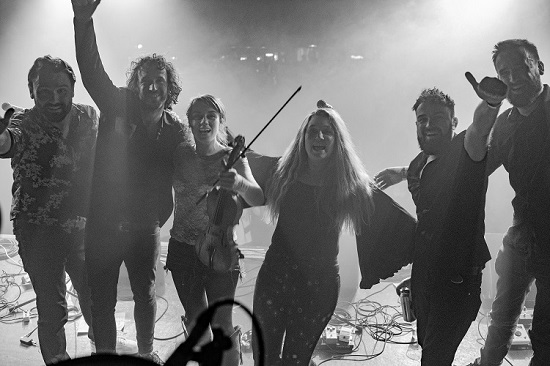
We like to try something different now and again. It’s the challenge. Allan, as we probably know likes a challenge, which gig photography always provides. This year, as new connections have been made with artists and managers, opportunities have come up to try a few other things away from stage performance. And why not? Over to Allan.
Eleni (Echo Wants her Voice Back) Camden Chapel soundcheck
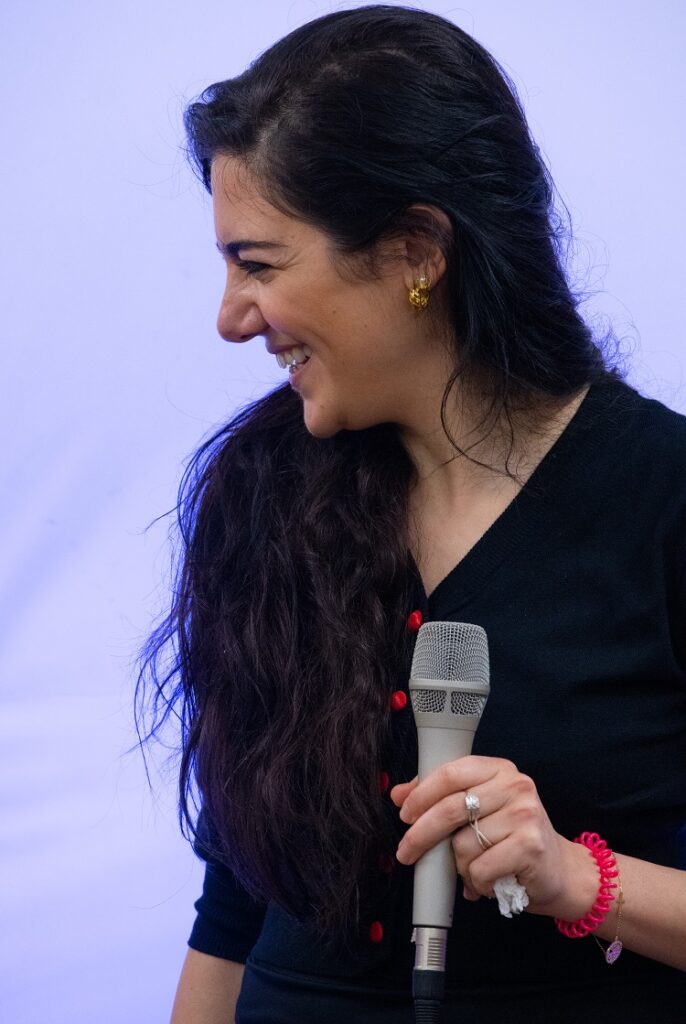
I’ve photographed Eleni a few times over the last few years and she’s a joy to shoot. Her face is always animated and her wardrobe is always striking. And the music – it’s a mixture of pop, r’n’b and Hellenic Noir and it’s very dramatic. Add to that Eleni’s striking and powerful voice and some unusual arrangements and you have a potent mix. When she played the intimate Talentbanq venue The Camden Chapel in January this year, I turned up for the soundcheck to grab a few shots in a fairly relaxed environment. Even at a soundcheck, Eleni’s still a performer.
Nicky (Morganway) 229 Soundcheck
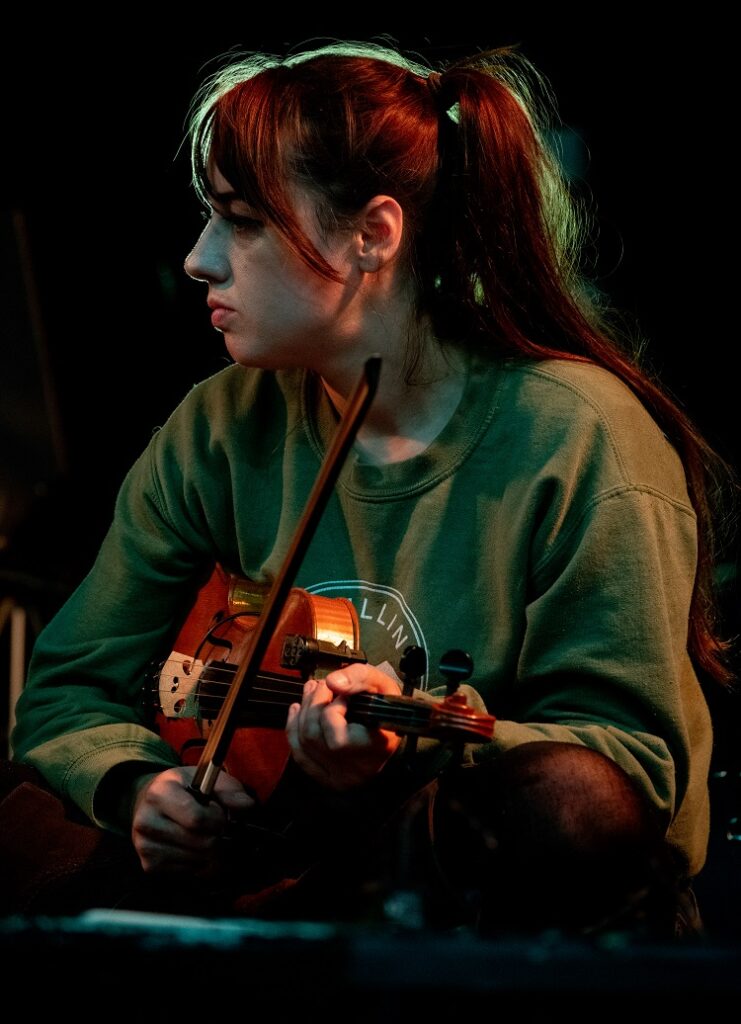
Another Talentbanq gig at a slightly bigger venue than The Chapel. This one was a celebration of Talentbanq’s fifth birthday and Morganway, one of my favourite bands, was playing so it was an opportunity for a catch-up and another chance to shoot an incredibly dynamic band in action. Soundchecks, apart from the full band run-through, can be a bit tedious for band and onlookers alike but there can be some gold there if you keep looking for it. Nicky (Nicole J Terry) is Morganway’s violinist (or fiddle player, however you call it). On stage she’s a bundle of pure energy, playing, singing and dancing as if her life depended on it. After doing a quick line check for her violin and vocals, Nicky took an opportunity to relax as the stage light were being set up. She was completely relaxed, which would have made a nice photo, but I was able to line the shot up with a light shining from directly behind, which really made it ping.
The Slacksons, Hanwell Hootie post-gig
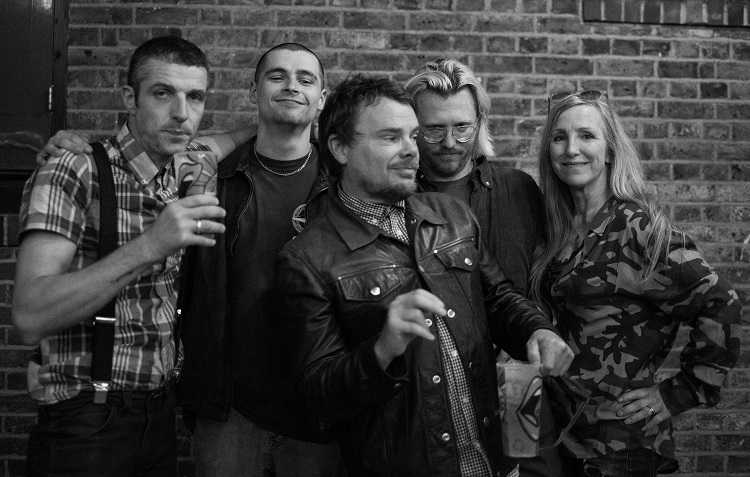
I’ve shot The Slacksons a few times now as well. Their crowd-pleasing blend of samples and live instruments with Mikey and Andy out front pinballing around the stage make them a great live attraction. I first met the band through one of those weird music business coincidences – their manager has the same name as my sister, so obviously when we connected on social media, I thought my sister’s account had been hacked. So I ended up shooting a few of the band’s gigs including their appearance at he Hanwell Hootie this summer. We decided to do some post-gig pictures which involved about two minutes shooting and forty-five minutes rounding up the band. I liked this shot with their manager making an appearance as well.
Kat ‘Liar, Liar’ video shoot
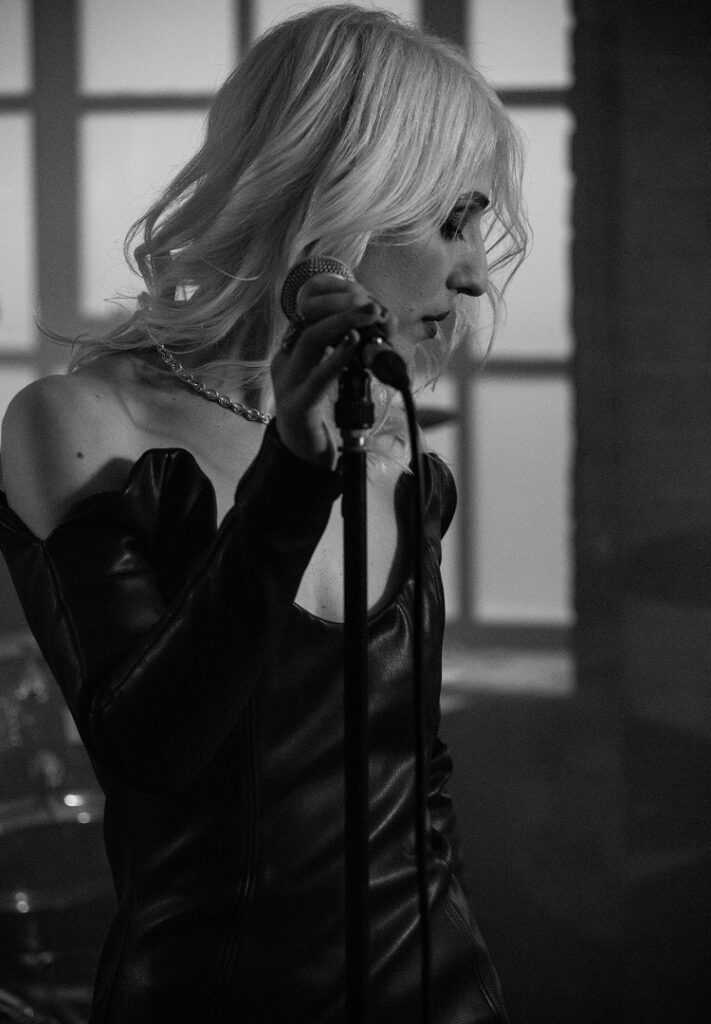
Kat, like Eleni, is a singer-songwriter and actor (also a radio presenter). I’ve shot a few of her gigs and got an invite to do some behind-the-scenes photos at the shoot for the video of her single ‘Liar, Liar’ in April. Not something I’d done before but I’m always ready to take on something new. If I’m honest, it’s a bit like a soundcheck, you just keep your eyes open for anything interesting, keep out of shot and don’t cast any shadows on the shot. Kat’s another person I love to photograph, mainly because the results are always good. You can probably see what I mean.
Lyndon Morgans & Phil Burdett, St Pancras Old Church
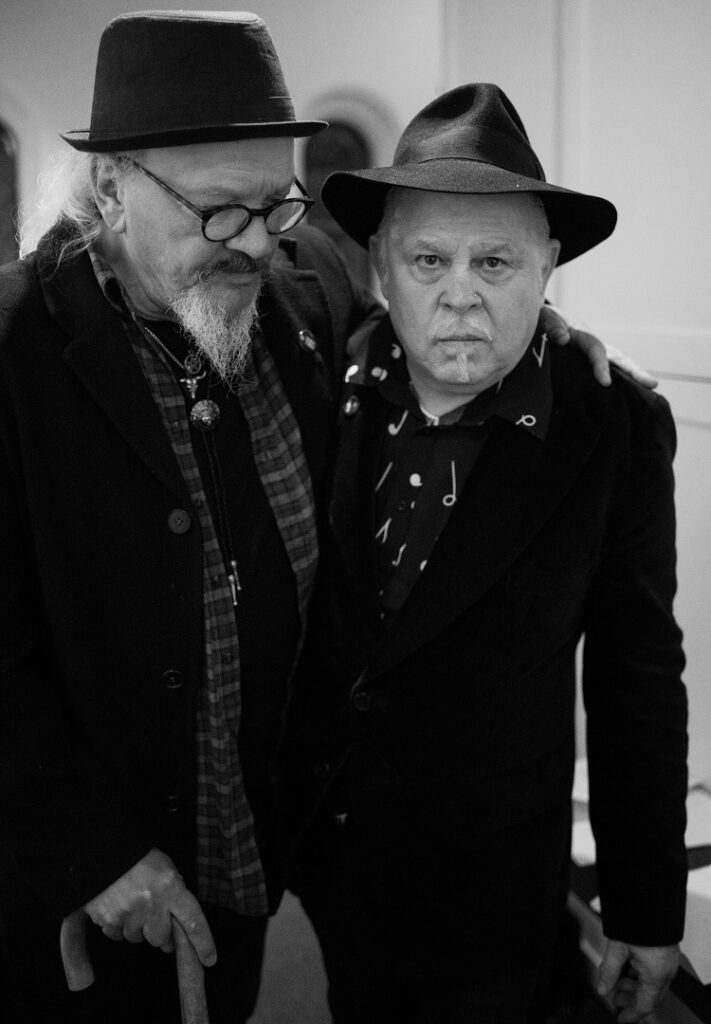
Bit of a change of style here. I’ve known Phil for a few years now and he introduced me to Lyndon (Songdog) just before the plague. When I heard about this gig I was really pleased because I haven’t shot Lyndon before. Only one problem, I already had gig that night, shooting Stone Foundation and Graham Parker at Koko. Fortunately the two venues are only a few minutes apart and the Stone Foundation gig had an early curfew so I had a swift walk over to SPOC to catch the end of Lyndon’s set. We went back to The Green Room to speak to Lyndon and the obvious photo opportunity came up. Here’s one of the results.
A couple of bonuses
Here’s a couple that are almost gig photos. After Kat’s launch party for the ‘Liar,Liar’ gig at Piano, the band was so up that I had to try to capture the moment. The Morganway shot, from the same gig as the earlier shot of Nicky was planned in advance because I’d always wanted to take one of those shots at the end of a gig from the drum riser. The lighting wasn’t ideal and there was too much smoke bit I still like the moment the photo captures.
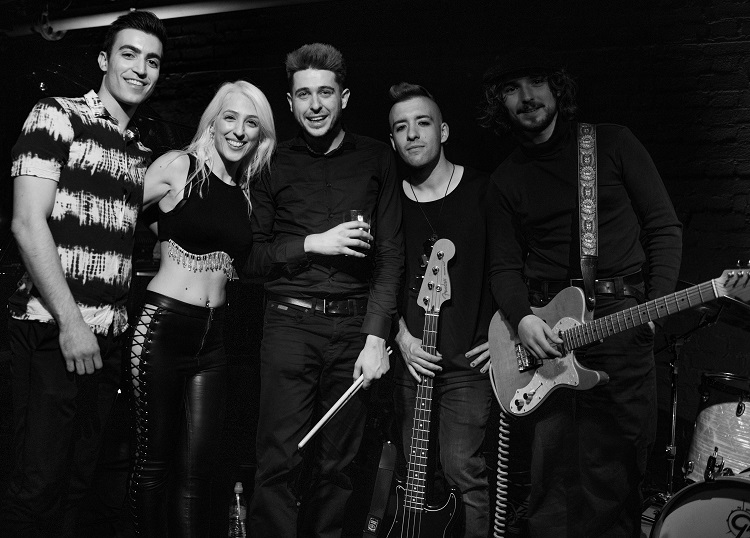
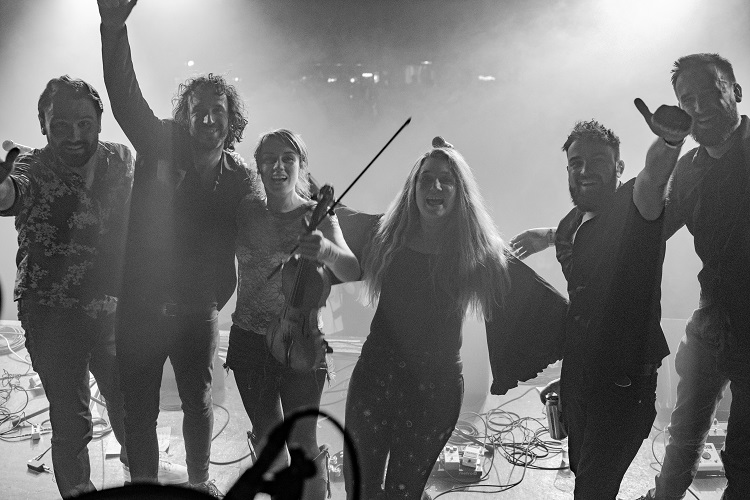
We know that Allan likes to try to capture something out of the ordinary occasionally when he’s shooting gigs so we asked him to share five images that move away from traditional gig photography without getting into the abstract realm. We quite like his selection.
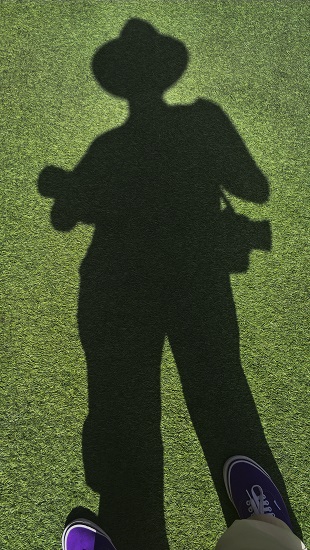
I do like a bit of variety; with the best will in the world, it can be quite a challenge creating an interesting image from the same basic elements time after time, so I start to look around for a bit of a change, whether it’s something visually different at a gig or something out of my music comfort zone. The first opportunity I had to take a slightly different direction in August 2019, when I photographed two poetry events. Within 6 months, I’d shot three poetry gigs involving the same two poets, one in a conventional gig venue, one on a canal boat and one in a library. Then along came COVID to wipe out most of 2020. The next opportunity to see these two poets again was in the basement of The Bloomsbury Theatre in October 2021. Actually, calling it a basement’s a bit unfair; it’s lovely performance area and well-lit for photography. The first two photos are from that gig.
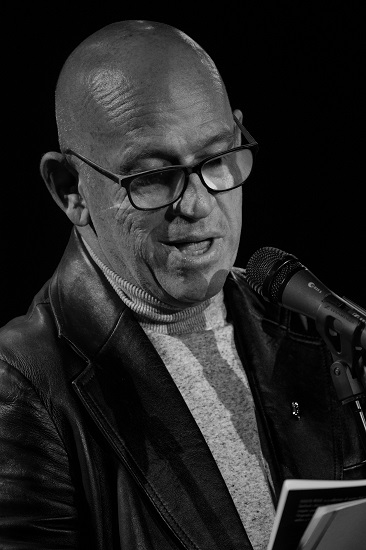
Ralph Dartford @The Bloomsbury
Another of those gigs that was postponed because of the plague, but finally happened a couple of months ago. The gig was arranged to promote Ralph’s second volume of poetry, “Hidden Music”. I loved his first collection, “Recovery Songs” and I’d seen him perform three times so this was one to look forward to. Ralph’s poetry is firmly grounded in his early life in Basildon and his struggles with addiction and “Hidden Music” continues to explore these themes along with Ralph’s extensive globetrotting. Ralph’s a huge music fan as well and “Hidden Music” is a concept album; each poem has a piece of music recommended as a companion piece. I may be slightly biased but I recommend both of the books. Ralph’s a very intense performer and I hope this captures some of that intensity. I went for monochrome because the colour of Ralph’s clothing.
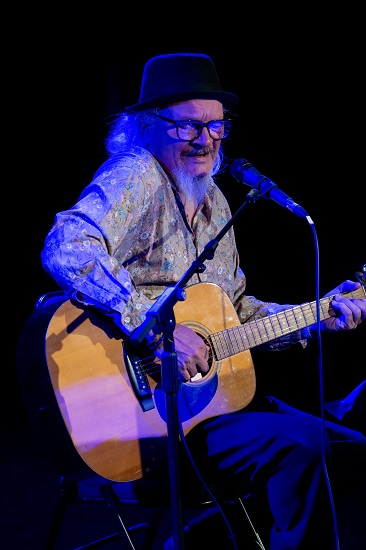
Phil Burdett @The Bloomsbury
I’ve known Phil Burdett for a few years now, seven to be precise. I reviewed his wonderful “Dunfearing and the West Country High” in 2014 when I was recovering from a knee operation. I was blown away and it had nothing to do with the pain-killing medication. Phil’s lyrics have always leaned towards the poetic and the move into poetry was fairly logical. It happened four years ago when Phil was recovering from a serious operation and poured his creativity into painting, prose and a film script (currently in production). Phil was finding it difficult to get back into live music performance after a traumatic spell in hospital and came up with a compromise solution; combine a performance of his first volume of poetry (“Rhyming Vodka with Kafka”) with a few songs accompanied by fiddler/mandolin player Steve Stott at a joint promotion for Ralph’s “Recovery Songs”. They’re both from Basildon and both appeared in the documentary about their hometown, “New Town Utopia”. Unlike the picture of Ralph, this worked well in colour with Phil limned in the purple light.
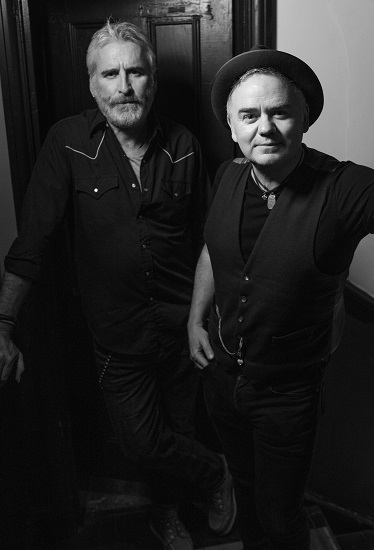
Dean Owens & Jim Maving @CTZN Brew
It’s surprising what you can improvise at short notice when the pressure’s on. I’ve started to dip my toe in the waters of backstage portraits and this was a good opportunity. I know Dean and Jim pretty well, so it was quite a relaxed vibe apart from time pressure (they were due back on stage in a few minutes) and a suitable location. The best lighting we could find was outside the toilets (a bit like The Borderline after the refit, really), so we dodged between customers making calls of nature and managed to get a few shots. With reasonably bright, but harsh, lighting, I was able to keep Dean and Jim in focus. Dean and Jim then went back upstairs to deliver a storming set of (mainly) Dean’s songs with Jim supplying harmonies and some stunning acoustic solos as Dean delivered powerful vocal performances including a new version of his Felsons song “Shine Like the Road” and an a cappella Frank Sinatra cover. These guys are the real thing and they sound even better with Tom Collison on keys and bass. This shot was used on a poster for a run of December Scottish gigs which was blown out by COVID.
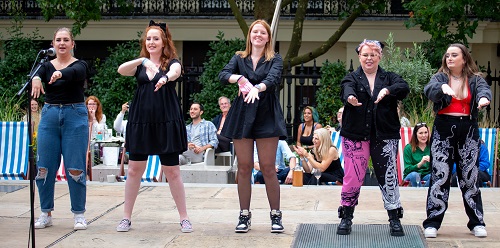
Flashmob @St Martin-in-the-Fields
As COVID restrictions loosened over the summer, Talentbanq promoted weekly outdoor gigs at St Martin-in-the-Fields church opposite Trafalgar Square. Tourists were starting to return to London, and this was a perfect venue for a drink in the sun while listening to some great live music. I shot a few of the events and they were great fun; the performers were chuffed to be playing again and the audiences loved the renaissance of live performance.
Sometimes you look around the audience and spot a particularly lively group that are worth keeping a eye on because they’re joining in enthusiastically or just because they look like a lot of fun. Well, there was a group like that in mid-August. Between performances by Devon Mayson and American band We Three, while we were listening to the Ray Jones party playlist, the stage was invaded the instant The Macarena kicked in. Sometimes the great shot comes from watching the audience.

Vintage Christmas Cracker @The Grove Theatre, Eastbourne
A theatre shoot, why not? An acquaintance was directing and acting in an amateur Christmas show at The Grove Theatre. Why not take the cameras along? It was a chance to do something new and learn a bit about a discipline that has a lot in common with the work I normally do. What were the differences? Well, it appears that theatre lighting (in smaller theatres anyway) is still predominantly tungsten filament as opposed to LED, which is fairly common in gig venues. I know that LED is more energy efficient, but tungsten is warmer and less harsh; it’s just a nicer light. Unlike small rock gigs, even tiny theatre gigs will place an emphasis on a good lighting plot. It makes such a difference, as you can see in this (almost) perfectly evenly-lit shot.
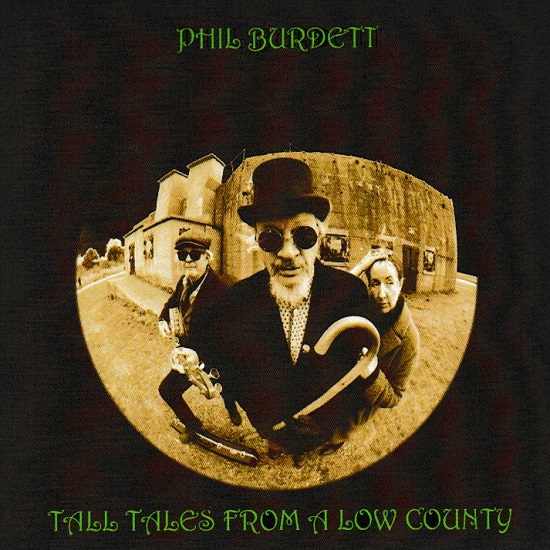
Not so much of an album review as a dispatch from the front lines. Since his serious health difficulties five years ago, Phil Burdett’s become the prolific polymath of the Thames Estuary. He’s always been a singer-songwriter of the highest calibre as a live and recorded artist, but he’s broken out of those shackles since with 2016 by publishing and performing poetry, writing prose, directing film and doing some painting as well. The latest news is that he’s released “Tall Tales from a Low County”, a companion piece to last year’s “Folkmares” album with a similar theme of the East End Essex diaspora, the demographic transition from London’s dockland to the estuarial towns, old and new.
“Tall Tales from a Low County” features two long-term Phil Burdett collaborators, Steve Stott (playing fiddle, mandolin, banjo and ‘weird guitar’) and Colleen McCarthy (piano and vocals). Alongside Phil’s contributions on guitar (including, unusually, a bit of electric), programmed percussion, organ, accordion and some digital orchestration, they create soundscapes that match the meandering progress of the Thames and various points along its course. And you’re never too far away from some birdsong (or even seagulls) and tidal susurration along the way.
As with all of Phil Burdett’s albums, you can listen on a superficial level and thoroughly enjoy the experience, but the deeper you dig into the lyrics, the more satisfying it becomes. Phil puts the time into researching his themes; if you do the same you’ll enhance your experience of the entire piece, pulling together history, sociology and geography to tell some of the human stories of the river that made London and the south-east, from its meandering source to its meeting with the North Sea.
“Tall Tales…” opens with an ethereal exploration of London’s lost rivers, “Hush River Blind”, the arrangement conveying the menacing, claustrophobic atmosphere of subterranean rivers in culverts under England’s capital, all ultimately feeding out into the Thames on its journey to the estuary in the same way the songs broaden out to cover the lore of the river and the people that exist in a state of mutual dependence with it. I won’t force-feed you my opinions of every song (just take my word that they’re all good) but I will pick out some of my favourites.
The second song “Lighterman” has more space in its arrangement led by Phil’s chiming acoustic with the accordion (Phil again) and fiddle creating a sea shanty feel emphasised by Colleen and Phil’s layered backing vocals. The slow pace reflects the speed of the job done by the lightermen (now largely vanished), who moved the cargo from ships moored in the Thames to the shore (usually unpowered) before the heyday of the docks and their subsequent decline as a result of container ships. It’s a song in praise of people who did a highly skilled job using mainly the tides until a ‘better’ method evolved.
“Plotland Pioneers” is Phil Burdett at his very best, combining personal memories with social history in a slow country rock setting with a subtle combination of electric and acoustic guitars capturing a 1979 vibe perfectly, which is used as a narrative framework to timeshift back to the end of the nineteenth century, when land around Laindon that was uneconomical to farm was auctioned off in plots and bought mainly by people from the East End and developed as holiday or retirement homes. The infrastructure was non-existent (and don’t even ask about planning permission), but somehow the pioneers made it work until the area became part of the Basildon New Town project and was demolished from 1949 onwards. There’s even a reference to the companion album, “Folkmares”, slipped in there as well.
“Bow Bells, Shoebury Gun” is in the same mould, combining the progress of the river to the North Sea with a very personal spoken word memoir of childhood days in Basildon. It’s taken at a very leisurely pace as it drifts backward and forward in time and place, creating a haunting feel and a sense of displacement and exile. There might even be a slight nod in the direction of Leonard Cohen with the line: ‘Where are the cracks through which the sunlight shone now everything is gone?’ It’s a tour de force.
Almost everywhere you look on the lyric sheet (oh, the packaging’s superb as well, with stunning photography by Robert Shaw), there’s an interesting reference: Joseph Conrad, William Blake, the Great Dock Strike, the Crow Stone and London Stone (the Thames boundaries of the City of London) and so on. And could the line ‘The union’s gone and the chancer’s beer is tasteless’ be a reference to anyone other than Tim Martin? I do hope so. At a time when curmudgeonly old musicians are making songs in support of the anti-vaccine lobby and COVID deniers, maybe it’s time to listen to a songwriter that still has something interesting to say and an interesting way of saying it.
“Tall Tales from a Low County” is out now and you can show your support for a genuine British original by buying it here. Phil’s playing a gig to launch the album in St Mark the Evangelist Church, Southend on Saturday September 11th and I hope I’ll see you there.
And the rest of the news? Phil’s directorial film debut is ongoing (with cameo appearance from Wilko Johnson as a vicar) and the third album of Phil’s Cornish trilogy is now in pre-production with studio recording coming up fairly soon. He’s not hanging about.
Here’s a video clip for “Lighterman”:
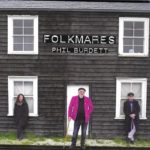 Phil Burdett; the eternal iconoclast. The most characteristic line of the album for me is ‘antagonize a purist’ from the album’s closing song “Newport Electrics”. The song, and the message, are built around Dylan’s infamous electric performance at the Newport Folk Festival in 1965, although the intro hints at the Hendrix performance of “The Star-Spangled Banner”. It doesn’t actually typify the album; it’s twice as long as most of the songs and three times longer than some and it has a psychedelic, hippy-trippy vibe with Indian percussion and hints of Ravi Shankar’s influence. You can fill your boots checking out the Dylan references, but there’s more buried there in the story of how music constantly evolves in the line ‘the strummer’s fix is in’ – is it the frontman of The Clash or a general reference to three chords and the truth guitar players? You decide.
Phil Burdett; the eternal iconoclast. The most characteristic line of the album for me is ‘antagonize a purist’ from the album’s closing song “Newport Electrics”. The song, and the message, are built around Dylan’s infamous electric performance at the Newport Folk Festival in 1965, although the intro hints at the Hendrix performance of “The Star-Spangled Banner”. It doesn’t actually typify the album; it’s twice as long as most of the songs and three times longer than some and it has a psychedelic, hippy-trippy vibe with Indian percussion and hints of Ravi Shankar’s influence. You can fill your boots checking out the Dylan references, but there’s more buried there in the story of how music constantly evolves in the line ‘the strummer’s fix is in’ – is it the frontman of The Clash or a general reference to three chords and the truth guitar players? You decide.
As always with Phil Burdett albums, you can spend all the time you have unpicking the words and looking for the references. I’m not doing it for you, but I’m just saying it might be worthwhile. Phil will argue that lyrics aren’t poetry because they rely on the music to make them work, but let’s just say they’re written in a poetic style. We can probably agree on that.
“Folkmares” came out of a difficult time for Phil; he has a work ethic that won’t allow him to stop. If he can’t write songs, he’ll paint or write poems or find some other way of creating art. What’s certain is that it won’t be boring or bland: guaranteed.
It’s a home studio recording with Phil singing, playing guitars, keys, bass, percussion and harmonica, while Steve Stott (fiddle and mandolin) and Colleen McCarthy (vocals) supply the folkier elements and a more country, string band sound. Phil’s influences are many and varied and most of them poke their heads over the parapet at some point in the album’s fifteen (yep, fifteen) songs. It’s a nod to the folk tradition that almost a third of the songs on the album are in 3/4 time, and those are some of the most poignant songs. I bet you want to know what some of the songs are about as well.
The album looks back to an earlier time in Phil’s life, not through the rose-tinted sunglasses of nostalgia, but the telephoto lens of realism, with absolutely no filters. The songs are set in either central London (Soho, Camden, you get the picture) and south-east Essex (Basildon and Canvey). The London settings have the feel of a Patrick Hamilton novel fifty years on at the start of the Thatcher era (looking forward as well in “Albion Caustic”), with scenes in pubs and an interesting array of characters. There aren’t too many happy endings either.
The Essex songs are set in a slightly earlier and maybe more innocent period, shining a bit of light on a time of life where everything seems possible yet impossible at the same time. We’ll start there for favourites. “New Factory Hand” (in ¾ time) evokes with concise phrases the stark reality of working life in the late sixties and early seventies and how we escaped from it, while the song following, “From a Van on the Coryton Road” is set just before the Thatcher era capturing the drudgery of dead-end jobs around Canvey Island and again the escape, ‘When Friday rolled by we would lead our wage packets to drink’.
I’ve already mentioned “Newport Electrics” a very personal take on the history and hypocrisy (bit of Jane Austen there, sorry) of the folk scene while “The Last March” does the same for the march and demo movement of the mid-eighties and the ‘I was there’ pose. You could update it for 2020 and call it “The Last Petition”. While we’re with the stupid ideas, the busker’s anthem “Flatpicking Sorrows on Borrowed Guitars” could be filmed by Wim Wenders as “The Busker’s Hatred of Brown-Eyed Girl”. Just sayin’.
What else? The packaging of course. Phil likes to include a lyric booklet and this time the photography (by Steve Stott and Rob Shaw) and the design, layout and graphics (by Steve Stott) combine to create a perfect setting for the lyrics. Bloody good job all round, I say from the Southend massive and a namecheck for John Bulley because I don’t want to leave him out.
While we’re all going stir-crazy, why don’t you treat yourself to a big helping of lyrics that will actually make your brain work and some really interesting musical settings.
“Folkmares” is out now and it’s available here. You won’t spend a better tenner before the lockdown ends.
Bit of a video taster before you go? Thought so:
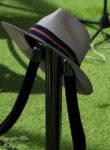 Just let me be completely serious here, the whole idea of reviewing albums and gigs and doing live music photography is something I wouldn’t have dreamt of ten years ago. Whatever gods you believe in, I will thank them for this opportunity. Every album I hear or gig I go to is another bonus and I truly appreciate it; I’ve made many friends as a result of doing this and had some wonderful times. Every year for the last five years or so, I’ve had few moments that stop me in my tracks and they’re still coming. Here are a few from 2019, in no particular order.
Just let me be completely serious here, the whole idea of reviewing albums and gigs and doing live music photography is something I wouldn’t have dreamt of ten years ago. Whatever gods you believe in, I will thank them for this opportunity. Every album I hear or gig I go to is another bonus and I truly appreciate it; I’ve made many friends as a result of doing this and had some wonderful times. Every year for the last five years or so, I’ve had few moments that stop me in my tracks and they’re still coming. Here are a few from 2019, in no particular order.
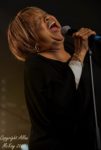 Mavis Staples @The Roundhouse
Mavis Staples @The Roundhouse
It wasn’t the first time I’ve had the opportunity to photograph Mavis; that was Cornbury Festival last year. This was different; it was the full-on show, the proper gig experience. Proper soundchecks, full-length sets and not having to dash off to shoot another band after the first three songs. And it didn’t hurt that the support for Mavis’s two gigs in England was Stone Foundation, my favourite current UK soul band; they rose to the occasion, powering through a tight set and grabbing the attention of an audience that had mainly come to see Mavis as part of the Innervisions Festival. I’d managed a couple of decent shots of her at Cornbury, but you never pass up an opportunity to photograph a legend again. Three songs from the pit, including a few that I’m still happy with, and then what? Get to the mixing desk, stand in front of it and enjoy the force of nature that is Mavis Staples and her band. The songs always had power, the band are totally on it and Mavis’s voice is undimmed by age. What a night.
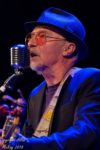 Interviewing Graham Parker
Interviewing Graham Parker
Bit of context here. As a student in the late seventies (I know, you work it out), I had access to a lot of gigs and I was just getting into gig photography (Olympus OM-1, if you’re interested). I spent a fair amount of time as a DJ with current MusicRiot contributor Steve Jenner. As a DJ at that time in Students’ Unions, you got a lot of freebies. One of the freebies that grabbed my attention was an EP by Graham Parker called The Pink Parker EP (the original limited edition was on pink vinyl) and it ignited a life-long love of this guy’s music. He’s now one of several musicians that I’ve photographed at an interval of four decades; you get the picture, I’m a fan.
Cutting to the chase, in February of 2019, a Graham Parker tour celebrating the fortieth anniversary of the album “Squeezing Out Sparks” was announced and one of the dates was The Foxlowe Theatre in Leek, one of my favourite small theatres in one of my favourite small towns, coincidentally the current hometown of Mr Jenner. Tickets were bought and as the year went on, I thought it might be a good idea to collaborate with Steve on an interview with GP if we could swing it. Turns out (with the intervention of Neil Sheasby from Stone Foundation), we could. So, on Friday October 22nd in Leek, I found myself sitting with my oldest mate Steve Jenner opposite Graham Parker with a microphone between us. If you’ve got half an hour to spare, you can listen to it here:
It’s the first time I’ve been happy to use an interview as a podcast, rather than transcribing the whole thing. It was a bit of moment.
 Sam Tanner album launch @The Half Moon
Sam Tanner album launch @The Half Moon
Heard of Sam Tanner? You really should have, he’s the man. Sam sings, writes songs and plays keyboards, but that really doesn’t do him justice. He’s the funkiest keyboard player I’ve heard, his songs are incredibly powerful and then there’s the voice. As a keyboard player and soul singer in the UK, the obvious comparison is Paul Carrack. I’ve seen both several times and I have to say my money’s on Sam. I first got to hear of him as a member of Mollie Marriott’s band, then as member of Brother Strut (check out this Ed Sheeran cover) before bumping into him at various gigs around town. All of that talent and it turns out he’s a really nice guy as well.
For the launch gig for his solo album he pulled out all the stops (thinly-disguised organ player gag) with a full band, horn section and backing vocalists (Mollie Marriott and Izzy Chase). This was a quality line-up with the kind of players that could follow any changes and sounded incredible. Sam was on top form vocally and even dealt with audience members talking in his trademark gentle way: “If you’re going talk along, can you do it in B flat because that’s the key the next song’s in…”. Superb band, superb vocals and lovely atmosphere; I floated back to Putney station.
 Dana Immanuel & the Stolen Band @The Forum
Dana Immanuel & the Stolen Band @The Forum
While I’m ‘fessing up to all the bands I love, I can’t miss out Dana Immanuel and the Stolen Band. I love these people as artists and as people. In October, I saw the band three times. Each gig was special in its own way, but a support set at The Forum with a full house was a huge opportunity. The band supported Polish eighties punk band Kult who still have a huge following in the UK. It can be difficult playing support to a band with a hugely partisan following, but Dana had a secret weapon (besides having a great band). Fiddle player Basia is Polish and did various links and introductions in her home tongue, which the audience loved. It’s a fabulous feeling to see one of your favourite bands get a rapturous reception at a big gig on their own manor. I suspect I’ll be at a few more Stolen Band gigs in 2020.
 Poetry
Poetry
I know it seems unlikely, but I got back into poetry. Over the last few years, I’ve become a fan and friend of the songwriting colossus that is Phil Burdett. It’s been no secret that Phil’s had some issues over the last few years and working on his poetry is something that’s been therapeutic. This year, Phil published a volume of poetry and prose (it’s very good and you can buy it here) and launched it at The Railway Hotel in Southend-on Sea with a performance featuring spoken word and songs aided and abetted by his long-time collaborator Steve Stott, playing the usual mandolin and fiddle. I’d forgotten how good it is to hear poetry performed live and wasn’t remotely surprised at the way Phil aced his first live recital. And the songs with Mr Stott sounded bloody good as well. As if this wasn’t enough, Ralph Dartford supported Phil with the launch of his latest volume, “Recovery Songs” and also went down a storm. The audience was perfect; totally silent during the performances and noisily appreciative at the end of each piece
And there’s still more. A few weeks later, Ralph launched (no pun intended) his volume, “Recovery Songs” from a floating bookshop on the Regent’s Canal in King’s Cross, supported by Phil and Steve. Not quite such a captive audience, but great to see people walking along the towpath stop to listen. Those two volumes are probably the first new poetry I’ve bought since “The Mersey Sound”. Another bonus was that I had the chance to have beer with some very interesting musicians, which is a theme that crops up elsewhere in these High Fives. There might be a good idea buried somewhere in that.
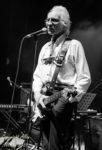 Nostalgia and a record
Nostalgia and a record
I can’t resist a bonus ball this time, inspired by the Graham Parker interview. In the same year that I first saw Graham Parker, I also saw a band from Birmingham that I’d heard a lot about, The Steve Gibbons Band. Imagine my surprise when I turned up to interview Southside Johnny at Shepherd’s Bush Empire in March to discover that Steve Gibbons had been added to the bill at short notice. Forty-two years isn’t my personal record for length of time between gigs I’ve seen an artist at; it ties with Brinsley Schwarz as a member of his band and as a duo with Graham Parker, but it’s quite impressive. My options for beating that record are pretty limited now; I think it might come down to seeing Ian Gomm or Billy Rankin again – just sayin’ guys, there’s a record to be broken here… To make everything perfect on the day, the interview went really well and the gig was absolutely storming. I love this job.
All images except Phil’s book cover courtesy of yours truly.
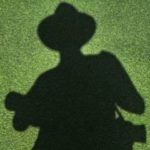 We asked Allan to share his favourite five photographs of the year and got the response we expected. ‘How can you pick favourites? It’s like asking a parent who their favourite child is’, and lots more in that vein. We eventually got him to agree to split them into five favourite monochrome and five favourite colour photos. Too good to be true really; it was, because he selected ten nice monochromes for us and said he couldn’t break it down any further. But surely ten’s just two sets of five; could we split them up? Amazing; five are male performers, five are female so here we go with the male performers, in no particular order:
We asked Allan to share his favourite five photographs of the year and got the response we expected. ‘How can you pick favourites? It’s like asking a parent who their favourite child is’, and lots more in that vein. We eventually got him to agree to split them into five favourite monochrome and five favourite colour photos. Too good to be true really; it was, because he selected ten nice monochromes for us and said he couldn’t break it down any further. But surely ten’s just two sets of five; could we split them up? Amazing; five are male performers, five are female so here we go with the male performers, in no particular order:
Steve Stott
First thing I’m saying about this is that I know Steve quite well. He’s part of a scene in Southend-on-Sea and is a very gifted fiddle and mandolin player; he’s also a really nice guy. I got to know Steve because he collaborates extensively with Phil Burdett (and you really should check him out). This shot was taken upstairs at The Railway Hotel in Southend at the launch of volumes of poetry by Phil Burdett and Ralph Dartford. Phil decided to intersperse readings of his poems with some of his songs, accompanied by Steve, meaning that Steve had some onstage downtime. And the point that I’m approaching tangentially here is that the interesting stuff doesn’t have to be front and centre; Phil is a riveting performer and I loved the expression as Steve watched him recite:
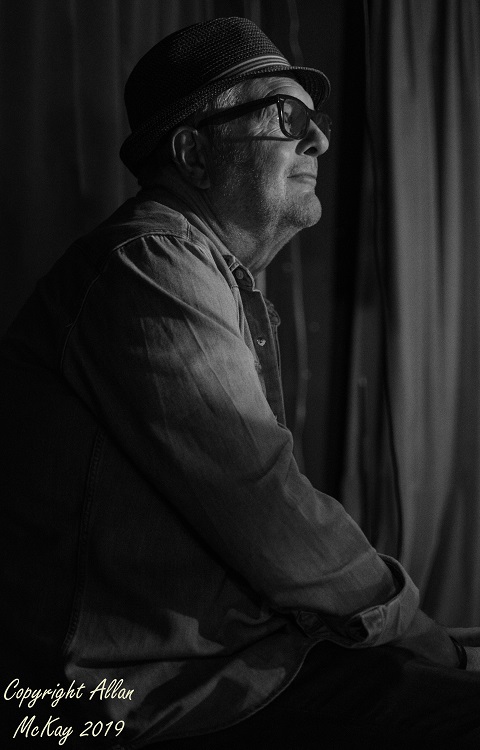
Sam Tanner
There’s a bit of a theme emerging here; Sam’s a lovely guy as well. He’s also a great keyboard player and has one of the most soulful voices I’ve ever heard. The first time I saw Sam, he was part of Mollie Marriott’s band as co-writer, keyboard player and backing vocalist. He’s also one of the members of the funk supergroup Brother Strut (check them out live and on record) and in 2019 he released his solo album. This shot was taken at the sold-out launch gig for the album at The Half Moon in Putney with an absolute all-star band and an audience packed with great musicians as well; Sam didn’t disappoint and I think this picture captured something of the essence of one of the UK’s finest soul singers:
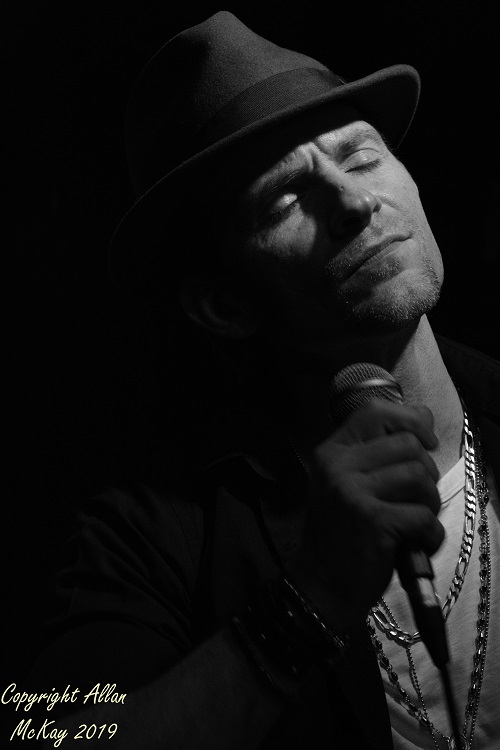
Red Berryn (Dominic Cooper)
My first encounter with Dom was at Leek Blues & Americana Festival in October 2018. I grabbed an interesting shot during his set and we got acquainted online. What Dom does is a tribute to the godfather of rock ‘n’ roll, Chuck Berry. This isn’t just any old Chuck Berry tribute; Dom’s totally committed, knows the Berry family and was actually invited to Chuck’s funeral. This isn’t just any of Chuck’s children out there playing his licks. This shot was taken in October 2019 at the same festival when Dom’s band supported the wonderful Little Victor at The Foxlowe Theatre. As Dom went into his splits routine, I got in close just as he shot a laser-like stare directly at the camera:
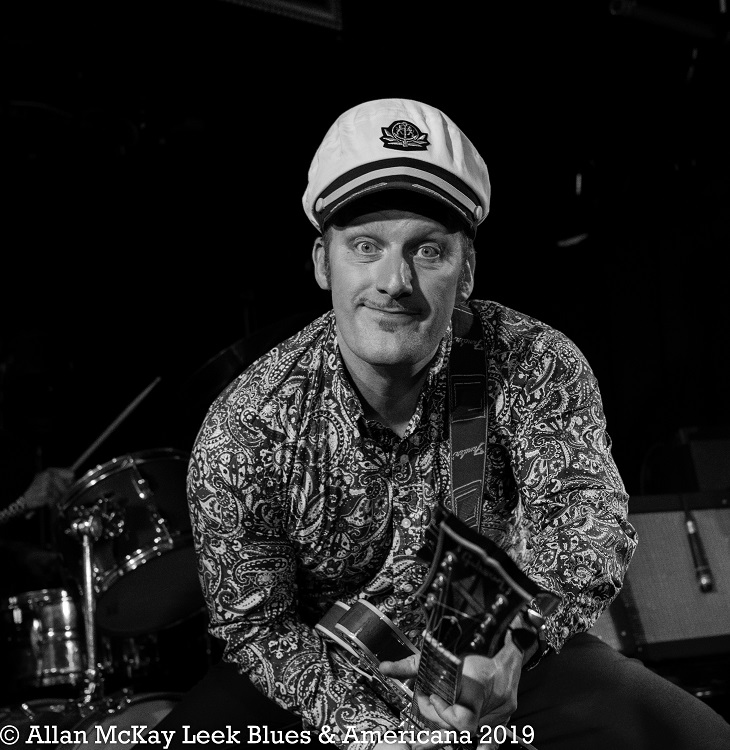
Mikey Christer
Social media has its faults, but sometimes it works wonderfully well. I photographed Mikey for the first time in 2017 when he played in Penny Riviera’s band (check her out as well) at her EP launch at The Hard Rock Café. On the back of one shot from that gig, Mikey got in touch and we’ve discovered since that we have loads of favourite bands and guitar players in common. When I heard that Penny was doing a gig at Slim Jim’s in Islington this year with Mikey in the band, it was a no-brainer. It’s interesting lighting there, but it works well with monochrome. It was great to meet up with Mikey and chew the fat and this was my favourite shot from the night:
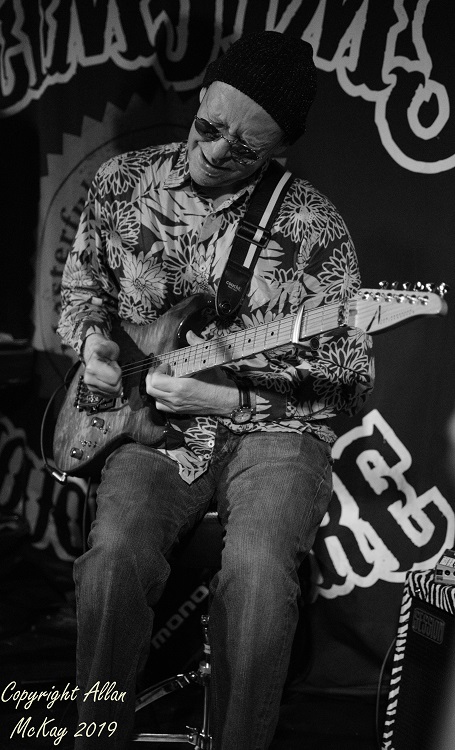
Connor Cockbain
I like to visit Brighton during The Great Escape for a day or so. The weather’s usually good and it’s nice to get away from The Smoke for a day. This year, the day was spent mostly in Caffe Nero watching some fabulous artists, but it’s always nice to pop over the road to The Mesmerist to catch some bands there. One of the bands I saw very briefly this year was The Post Romantics from Liverpool. I have some rules about gig photography and Rule One is that you don’t get the microphone directly in front of the singer’s mouth. Rule Two is that you can break the rules when you can justify it; the intensity of Connor’s stare in this shot is the justification. With minimal stage lighting and daylight through the windows, this was always a monochrome shot, which was a good thing because I had a chat with the band afterwards and they told me that Connor would convert it to black and white anyway:
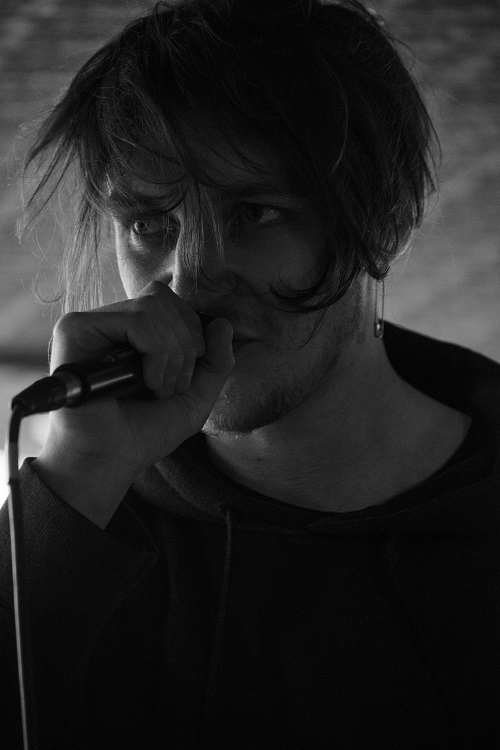
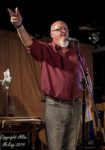 It’s fair to say that this isn’t really my manor. Yeah, I love The Railway Hotel in Southend for many reasons, the first being the wonderful bunch of people who choose to drink there. It’s an old-fashioned boozer that has successfully resisted any vogueish makeovers and remains a pub for people that like pubs (oh, and music, definitely music). It’s the kind of place where musicians, artists and poets (and the occasional photographer) meet up to drink, politely and non-judgementally discuss each other’s work and the work of others and drink and then drink some more. I may have fabricated a piece of that last sentence; you decide which bit.
It’s fair to say that this isn’t really my manor. Yeah, I love The Railway Hotel in Southend for many reasons, the first being the wonderful bunch of people who choose to drink there. It’s an old-fashioned boozer that has successfully resisted any vogueish makeovers and remains a pub for people that like pubs (oh, and music, definitely music). It’s the kind of place where musicians, artists and poets (and the occasional photographer) meet up to drink, politely and non-judgementally discuss each other’s work and the work of others and drink and then drink some more. I may have fabricated a piece of that last sentence; you decide which bit.
The reason for this trek out to Southend-on-Sea was the launch of books by Ralph Dartford and Phil Burdett and live performances by each of the authors. The last time I saw a live poetry event was nearly four years ago when Dr John Cooper Clarke supported Squeeze in Greenwich, which sets the bar fairly high. No worries on that score; Phil Burdett and Ralph Dartford had the goods and were ready to deliver.
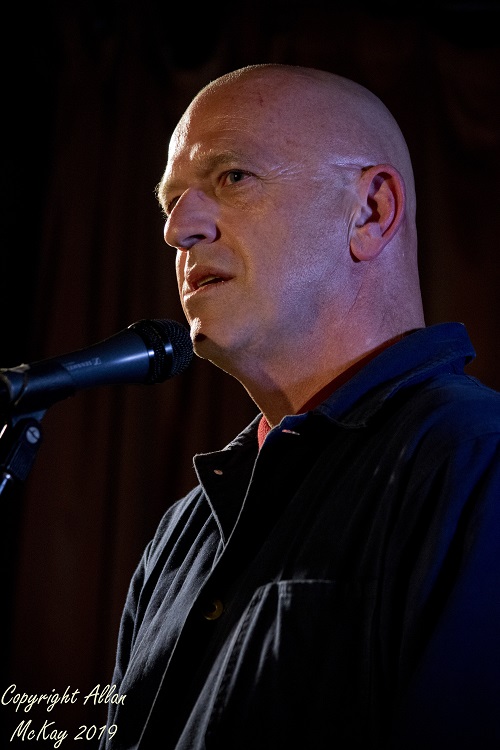
Ralph Dartford
It’s no secret that both of these artists have had their demons and maybe still do; that’s where the authenticity shone out in both sets. Ralph Dartford opened reading selections from his current volume “Recovery Songs” packed with pathos, humour and stark social realism (“Addict” set the tone for Ralph’s performance) joined up by a seamless narrative which demonstrated some superb comic timing. The audience was Phil’s home crowd, but they were attentive and hugely appreciative during Ralph’s set. I recommend the book and you can get it here .
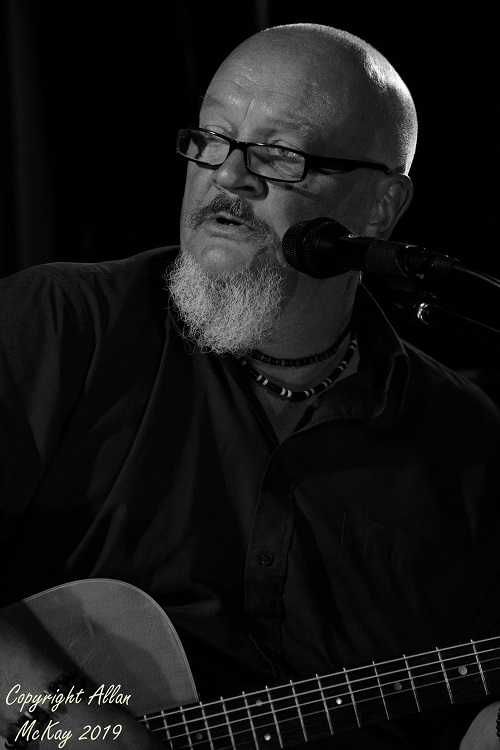
Phil Burdett
And the it was time for Phil Burdett, on a long and unpredictable journey from some very dark places indeed, to premiere his book of prose and poetry “Rhyming Vodka with Kafka”. Never one for convention, Phil delivered a mixture of readings from the book punctuated by songs old and new with support from fellow Southend legend Steve Stott on mandolin and fiddle (I’m not going to ask what happened to the banjo). For a first attempt at this format Phil nailed it, with the audience enthralled by the material and the delivery, pin-drop silent during the readings and wildly appreciative at the conclusions, particularly “The Bad Pub Guide” and “Dogs Accustomed to Loud Music”. Maybe a prophet can have honour in his own country.
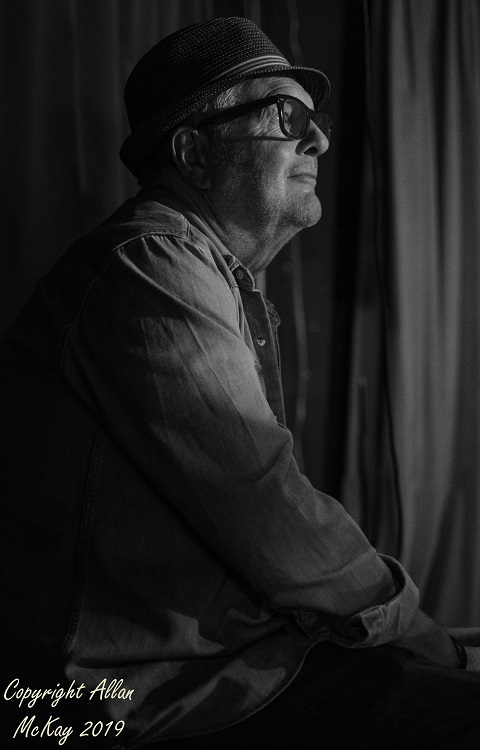
Steve Stott
Bottom line – I loved both performances; the audience loved both performances. I bought both books; a lot of the audience bought both books. It’s a long time since I’ve seen an entire audience so totally immersed in a performance. Thank you Ralph Dartford and Phil Burdett for making me realise that I need more poetry in my life.
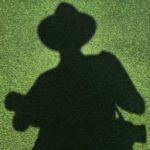 2018 was a bit of a year, really. There was a strong showing in the first few months of the year and it felt like the early albums would be difficult to beat. Maybe it was a self-fulfilling prophecy or the fact that, for one reason or another, I wasn’t able to review too many albums in the latter part of the year but the early albums were very difficult to beat. I’m only featuring albums that I reviewed here, so great pieces of work like the magnificent Stone Foundation album “Everybody, Anyone” doesn’t get a mention. Oops, it just did. Anyway, as always in no particular order, here are my five favourite albums of the year.
2018 was a bit of a year, really. There was a strong showing in the first few months of the year and it felt like the early albums would be difficult to beat. Maybe it was a self-fulfilling prophecy or the fact that, for one reason or another, I wasn’t able to review too many albums in the latter part of the year but the early albums were very difficult to beat. I’m only featuring albums that I reviewed here, so great pieces of work like the magnificent Stone Foundation album “Everybody, Anyone” doesn’t get a mention. Oops, it just did. Anyway, as always in no particular order, here are my five favourite albums of the year.
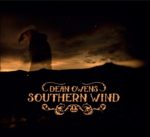 “Southern Wind” – Dean Owens & Will Kimbrough
“Southern Wind” – Dean Owens & Will Kimbrough
I’ve been a fan of Dean Owens since my introduction to “New York Hummingbird” six years ago. Dean’s a consistently great performer whose songs cleverly combine universal themes like love and loss with a particularly Scottish outlook. Over the last few years he’s been increasingly involved in collaborations (with Amy Geddes as Redwood Mountain and the upcoming Buffalo Blood album with Neilson Hubbard and Joshua Britt) and “Southern Wind” was a joint project with the superb and in-demand guitarist Will Kimbrough. The album is a classic; there’s no filler and lots of killer and you can clearly hear the influence of the wonderful Ronnie Lane, particularly in “Last Song”. I wasn’t going to single any particular song out, so how come that just happened. It’s a meeting in the mid-Atlantic between Leith and Nashville and it’s a Thing of Beauty.
 “Psychopastoral” – Phil Burdett
“Psychopastoral” – Phil Burdett
Coincidentally, I first met Phil Burdett on the same night I met Dean for the first time (this stuff isn’t just thrown together, you know) and they’ve both had very different journeys since then. If I had to pick one word for Phil’s attitude to his music, it’s uncompromising, and I mean that in a very, very good way. His back catalogue is all worth checking out, but his latest project “Psychopastoral” is something else. It’s a song cycle which tells the story of the journey home spread out over 24 hours. Sounds simple? This Phil Burdett. The songs are linked by spoken-word interludes and (courtesy of Lyndon ‘Songdog’ Morgan) and musical fragments created mainly by Senor ‘Al’ Franklinos. I know, it sounds like it could be a bit pretentious, as I said, this is Phil Burdett; it works perfectly. And Phil’s gone one step further than Pink Floyd by making the whole project one massive track nearly an hour long to force listeners to hear the project the way it was intended to be heard. Didn’t think I’d ever write a sentence with Phil Burdett and Pink Floyd in it.
 “Out from Under” – Michael McDermott
“Out from Under” – Michael McDermott
We can link this back to Dean Owens as well, because Will Kimbrough plays on this, as he does on a lot of Michael’s recent material. Told you he was in demand. The title song is big in an E Street Band style and, let’s face it, Michael will always get those Springsteen/Dylan comparisons and for all the right reasons. He’s a superb songwriter who understands the American songbook and its highways and byways and isn’t afraid to take a trip down any one of them. The album shifts seamlessly from the pathos of “This World Will Break Your Heart” to the joyful Motown exuberance of “Rubber Band Ring”. I said back in May that I hadn’t heard a better album this year and I stand by that now.
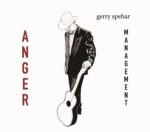 “Anger Management” – Gerry Spehar
“Anger Management” – Gerry Spehar
I loved Gerry Spehar’s previous album “I hold Gravity”. He’s a natural songwriter with a gift for a telling image. So just combine that gift with an exploration of the state of modern America following the election of Kurious Oranj. It’s political in less direct ways as well; “Bitch Heaven” digs into the story of Woody Guthrie’s campaign against Trump Senior and the Beach Haven property, while “Son of an Immigrant” double-underlines the blindingly obvious truth that the vast majority of Americans are immigrants if you go back far enough, including the current occupant of the White House. It’s an angry album, but Gerry is managing the anger by diverting it into creative channels. This is an important album and we should all listen to it.
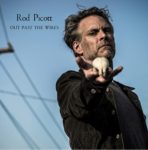 “Out Past the Wires” – Rod Picott
“Out Past the Wires” – Rod Picott
OK, quantity isn’t everything, but Rod Picott defied the current trend for shorter albums and EPs by releasing a double album (twenty-two songs in total). If you have the material and it’s good enough, get it out there. It’s good enough, it’s more than good enough. Will Kimbrough plays on it and also Neilson Hubbard (notice a theme here) but it’s not just about the playing arrangements, it’s also about the stories and that’s what Rod Picott is really good at. In fact, the stories are so important that Rod’s also publishing a book following the lives of some of the characters appearing in the songs and that should really be worth reading.
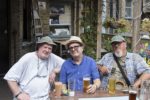
John Bulley, Steve Stott & Phil Burdett
When I get a message inviting me to visit the Railway in Southend to interview Phil Burdett, there’s only one possible response – when do I have to get there? Well, it was a mid-July Friday afternoon and the interview was livened up by the presence of Steve Stott, superb fiddle and mandolin player with Phil’s ever-evolving band. As always where Phil Burdett’s involved, it was interesting and sometimes controversial. I’ve left out some stuff to protect the innocent and the guilty – sorry Phil. Anyway, here’s how it went.
Allan – To start on familiar territory, with the last album, “Psychopastoral”, the thing that immediately struck me was releasing it as one continuous track, which gets round the whole iTunes download thing about single tracks or whole albums.
Phil – I’m sure they’re quaking in their boots at iTunes, it is a little victory but it’s the best I can hope for these days; Pyrrhic victories. I crave more Pyrrhic victories.
Allan – It took me a while to get this while I listened to it on my trusty old media player on continuous cycle as it went from the end straight back to the beginning, that the album was a cycle from the early morning to early morning a day later. I said at the time that I thought it was an outstanding piece of work, as good as anything you’ve done, I think.
Phil – I must admit, I was surprised, in the sense that it was different from what I used to do and I thought I’m either going to get some new people who like it and hate everything I’ve ever done or just everyone will hate it. You get so involved with it and you think you’re creating Wagner’s “Ring Cycle” and someone tells you ‘This doesn’t make any sense at all. What are you doing? You’ve lost your mind.’ It was pleasing that some people that liked what I do liked it and also some people some that haven’t particularly liked what I’ve done before seem to like it as well.
Steve – There’s probably some of the style that you used to do still remaining but combined with what you’re feeling now, so it covers both ends.
Phil – It’s like Tom Waits, but not quite such a radical change (that’s the next album). He lost a lot of his old fans who said ‘I liked him when he was drunk and living in a dodgy hotel and being a sort of dharma bum’, but you get bored with it. You can come up with many artistic reasons ‘I decided to embrace the idea of a concept album, in my late fifties…’, but basically you’re bored and I couldn’t get into music after the operation and the stuff I went through there. I started playing and did a couple of gigs and I felt like a Phil Burdett tribute act and I thought ‘What am I doing this for? I’m trying to write more songs like this.’ If you’re trying to write something don’t do it. So I thought let’s do something I can’t do, so we’re doing a film now.
I’ve got to do a film soundtrack; there will be songs, and that’s made me and write the songs because I think I need a song here to go over this bit of film.
Steve – There are some great songs, actually, from the demos I’ve heard.
Phil – Thank you. I hope you’ve got that on tape.
Allan – When we were chatting earlier, you were saying something the film being a bridge between “Psychopastoral” and the next album.
Phil – It is; there’s a lot of stuff I wrote in the hospital; morphine is a wonderful thing. I read it back when I sobered up and I thought I have no idea what this man is talking about, then it started making sense gradually and I realised that a lot of it followed on from what I did on the last album but I didn’t want it to be the middle album before I get really depressing with the hospital songs. I thought it wold be nice if it had some other element to it, so I thought ‘Let’s make a film!’ And directly, I thought there was no way I could make a film with on no money, no budget and no actors
Steve – Not strictly true…
Phil – So we are, and the fact that it’s actually happening is what’s keeping me going because even the prospect of doing the bunch of songs I had written felt like ‘Here we go again’ but this will spark it off and it’s also got a visual element to it, which I like the idea of. It’s not a series of music videos joined together, but you know The The did that film, I want it to have that sort of feel to it, but there’s a bit more drama involved (with a small d). We’re not talking “Apocalypse Now”, we couldn’t afford the helicopters…
Allan – And this is not the only film you’ve been involved with recently, is it?
Phil – No, I’m a regular luvvie now. ‘Just in between films, dahling’. It’s a documentary about growing up in Basildon. It was initially about brutalist architecture but it seemed to evolve when the director met a lot of artists from Basildon and they were all so different but they all had a similar theme of a love/hate relationship with Basildon so it was about that; it was good fun. He let me witter on then edited it down to something that was almost coherent, so I was quite pleased with that.
Steve – The people the film’s about, or featured in the film, have all left Basildon, haven’t they? There’s not a single one actually lives in Basildon now.
Phil – Which was hilarious. A lot of the Irish diaspora sing “From Clare to Here” and “Off to Dublin in the Green” but they’re all in Finsbury Park now. ‘We all love it but we’re not going back there. Fuck that.’
Allan – As an ex-pat Scot I completely get that. So, without giving too much away in terms of plot, what’s the story with the film?
Phil – Well the “Psychopastoral” album was basically, the narrative throughout was called ‘the long walk home’ and it’s an idea that I’ve discovered that many of the people I like, in music and literature and poetry, were always disappearing into the wilderness looking for something and what they were looking for was somewhere they could go home and that was the vague idea. A lot of them went to nature; it was based around William Blake, John Clare and Arthur Rimbaud. They all disappeared to derange their senses and they all found out they were miles from home: ‘I don’t feel at home and that’s what I wanted in the first place. I wanted to feel something.’ That’s the idea of that album and going through my traumas, I thought ‘They were all walking’.
John Clare famously walked from High Beach to Helpston; he walked from this lunatic asylum, going home to what he thought was his wife, but was actually his mistress, who had actually died anyway so it was an exercise in the definition of futility. I used him as the central character and Blake was another one who didn’t actually wander, but he wandered in his head. He was seeking angels in the trees; he was a cockney mystic, like the Russell Brand of his day. They were people who had ideas beyond their station and then realised that they wanted to get back to their station. It was the idea of comfort without being comfortable and when you derange your senses there is a sense that nothing makes sense and that can be liberating but, after a while, it becomes just derangement.
Rimbaud gave up altogether and became a gun-runner, Blake started to write about Heaven-knows-what and Clare lost his mind. He thought he was Shakespeare, he thought he was a boxer at one point. So I thought the halfway house of madness is fine because you get the little insights. When that’s happening, that’s great, but once you’re in an asylum and you’re thinking you’re Shakespeare, that’s really not useful as an artist.
Brian Wilson’s an example. Everyone thought ‘How on earth did he write “Good Vibrations”?’ Look at the stuff he wrote once he reached his destination and it’s like a five-year-old writing; wonderfully produced and interesting, but still like a five-year-old. I wanted to avoid that, so while I was in the hospital I wrote all this really depressing stuff because I thought everything was coming to an end but when I came out, I thought it’s not coming to an end but I couldn’t think in the same way as I did.
I thought it was a continuation. I’d lost a leg; Rimbaud lost a leg; Captain Ahab lost a leg searching for something and I grabbed the idea of the long walk home without a leg. That’s basically what this is all about. The further out you get, through drink, drugs, mysticism, anything, the less able you are to communicate it to people because they just think you’ve gone mad. But there’s a point just before it ends, before you do go mad, where it’s really interesting and that’s point I’m trying to hold on to in this film. And then it descends into depression and madness which is what the really interesting third album of the trilogy is about, but we’ll get to that later. I want to make it sound like Steely Dan actually because that’s the only way it’s gonna sell anything, either that or “Berlin” by Lou Reed, which I love, but it’s unlistenable to most people. This will make “Berlin” sound like Five Star
Allan– Looking beyond that, have you got any more plans for live stuff coming up?
Phil – It’s a bit tricky. I’ve lost all my mojo, although I don’t know what a Mojo is apart from a middle-class magazine for people who still like Crosby, Stills and Nash, but I don’t know. I’d like to do it but I want to have a point to it. It’s the same way I feel about the writing; I don’t want to do all this differently and feel I’ve changed my approach and then think ‘Oh, we’ll go and do some gigs’.
I’m having some poetry published at the end of the year and I’d like to include some of that in it because there’s a lot more poetry on the album. I wouldn’t mind dipping my toe in the water by doing stuff with Steve. We did a thing in a church, didn’t we?
Steve – Yeah, St Paul’s church. That was beautiful actually; it was purely acoustic, just a selection of songs that suited the venue. I suppose it was a kind of folky thing.
Phil – It was. I’d like to do that with some poetry, just to see if I can read the poetry. There’s a couple of poetry evenings here where you can just get up and read.
Steve – I think the other thing is to enjoy doing it rather than have the pressure of putting on a big gig and inviting lots of people.
Phil – When we planned to do the album launch gig, I got to the rehearsal and then thought ‘What the fuck am I doing?’. If it had all been rehearsed without me there, I might have been able to turn up and sing it but I was just sitting there thinking that I wanted to do something else, I didn’t want to be sitting there churning out this stuff. It felt it important that the whole process changed, and what I don’t want to do is just get back to ‘let’s do a gig then. All the creativity has stopped, let’s go and regurgitate it live with some feedback.’
Steve – We were doing gigs to promote the albums that we all produced, so the was the reason for the gigs.
Phil – And that’s why they’re all platinum sellers…
Steve – So the question is, do we really need to do that?
Phil – The Leigh Folk Festival, I’d like to do something there next year; not just for ‘Oh, Phil’s singing again and he’s got one leg. Oh, well done, Phil.’ Unless I have my head chopped off, I can fuckin’ sing; Ella Fitzgerald managed and I’m a better singer than she is. (Followed by a loud cackle).
Allan – I suppose the thing is, whatever you decide to do, you’ve got a great bunch of musicians working with you.
Phil – I have, just don’t tell my band. No, it’s true; I’m really appreciative of the musicians I’ve been able to talk into doing stuff for nothing because it would have been very difficult otherwise. I don’t like having a regular band. I used to but now I feel like everything we do something it’s a new band almost because we evolve with this particular bunch, except the drummers…
Allan – That’s all a bit Spinal Tap isn’t it?
Steve – I don’t even know if I’ll be on the next album…
Phil – You are, but you’re playing drums. Just don’t get the drummer’s job, because then you know you’re out. No, it is a bit Spinal Tap with the drummers. The last one did actually spontaneously combust.
Allan – I suppose, Steve, you’ve got double the chance of staying in the band, playing two instruments.
Phil – He sneaks in with a false nose and moustache. ’I’ve found a new fiddle player – fuck it’s Stott’
Steve – I try to make myself as indispensable as possible.
Phil – He does; he’s currently learning the oboe. It’s great; I’m getting in touch now because I’ve got these demos for the soundtrack of the film, so I’m going to send them the stuff and we’ll get together at some point and we’ll go and record. We’ll record it at Senor Al’s (Al Franklinos) because it’s my favourite place at the moment.
Steve – It ties in very nicely with “Psychopastoral” because of the park…
Phil – Well, the songs are very different from “Psychopastoral”, so I would like it to have some continuity and that will come from whatever Al does.
Steve – And it’s the location in Peckham, where Blake’s tree is, so there’s a catharsis there.
Phil – I’d like to point out that he used the word catharsis there. Always avoid the words journey and catharsis.
Allan – And what about some of the other collaborators on “Psychopastoral”?
Phil – One of the linking voices throughout this three-album thing will be Lyndon Morgans (Songdog) who did the narration for the album (“Psychopastoral”) and he’s going to do the narration for the film, the subsequent album and the album after that, so I’m really pleased about that. He’s an old Welsh wanderer, a Celtic wanderer and I need his Richard Burton-like authority. I’ll be making him read stuff he doesn’t understand for the next two albums.
Allan – I must admit, those links on “Psychopastoral” worked really well. His voice is fabulous for those.
Phil – It was the thing I was worried about because it was the thing that was going to make it different in a way and with my zero knowledge of arrangement of the quasi-classical stuff that’s going on in the background, it was either going to be great or it was going to be shit; there is no middle-ground. And it was almost great…
Allan – And is there anything else to throw in before we wrap it up?
Phil – There’s my collection of reggae covers… I’m looking forward, in a way, to finishing this trilogy because I don’t know what I’m going to do after that, and I never felt like that. It was always just ‘Here’s another bunch of songs that I like, I’ll record them with musicians I like and we’ll put it out and some people will like it and some won’t and then we’ll do the Leigh Folk Festival, then we’ll do this, then we’ll play The Railway’. That’s not going to happen, so I’m really interested in what I want to do after that.
Steve – I think we ought to base that on whatever the outcome of the film is. You might want to do another film.
Phil – I’d love to. I’m not sure anyone else will; I’m putting many people in to therapy with this film but that would be great. But then again, I might just think ‘I’ve done that’. I won’t do it just because I’ve made a film and invent some spurious half-arsed concept…
Steve – I was just trying to generate some work for myself…
Phil – I know you were. Talking of which, there’s a collection of folk-based songs that I want to record, so I might do that as a little side project with some real folk musicians. Radical concept, I know. It’s simple; you don’t rehearse, you just have to sober them up. That’s something I wouldn’t mind doing as a side project; it’ll be nice, it’ll be my stardust memory. It was so much better when we wrote songs…
And that was where I switched off the recorder before the descent into totally scurrilous alcohol-fuelled conversation. The Basildon film that Phil refers to is ”New Town Utopia” and it’s a fascinating exploration of the development of the town and its impact on the creative artists living there. You really should watch it.


